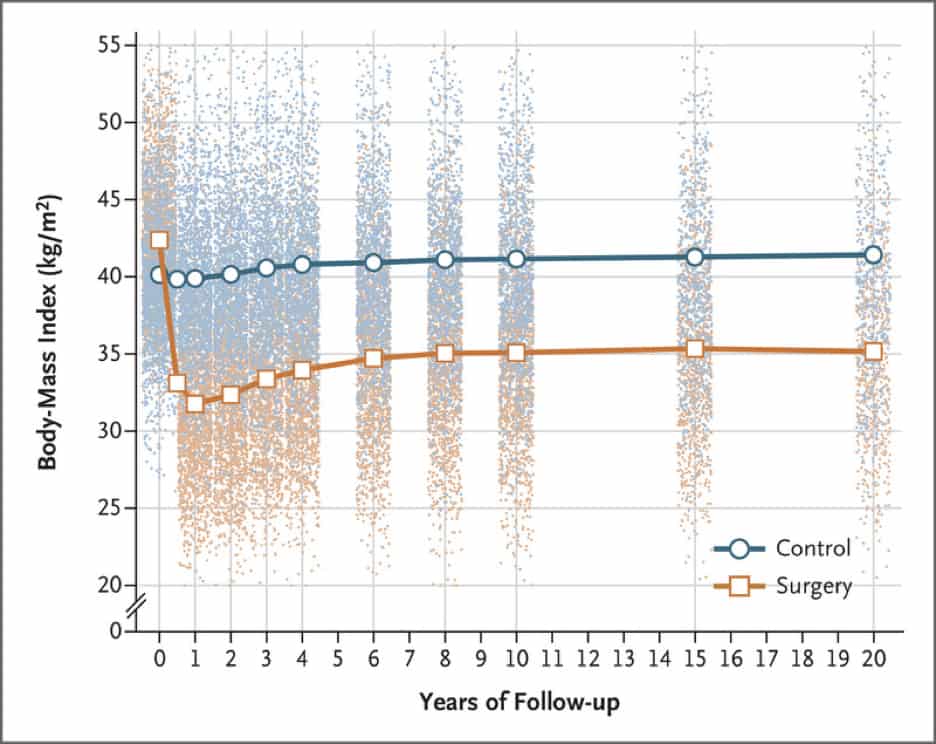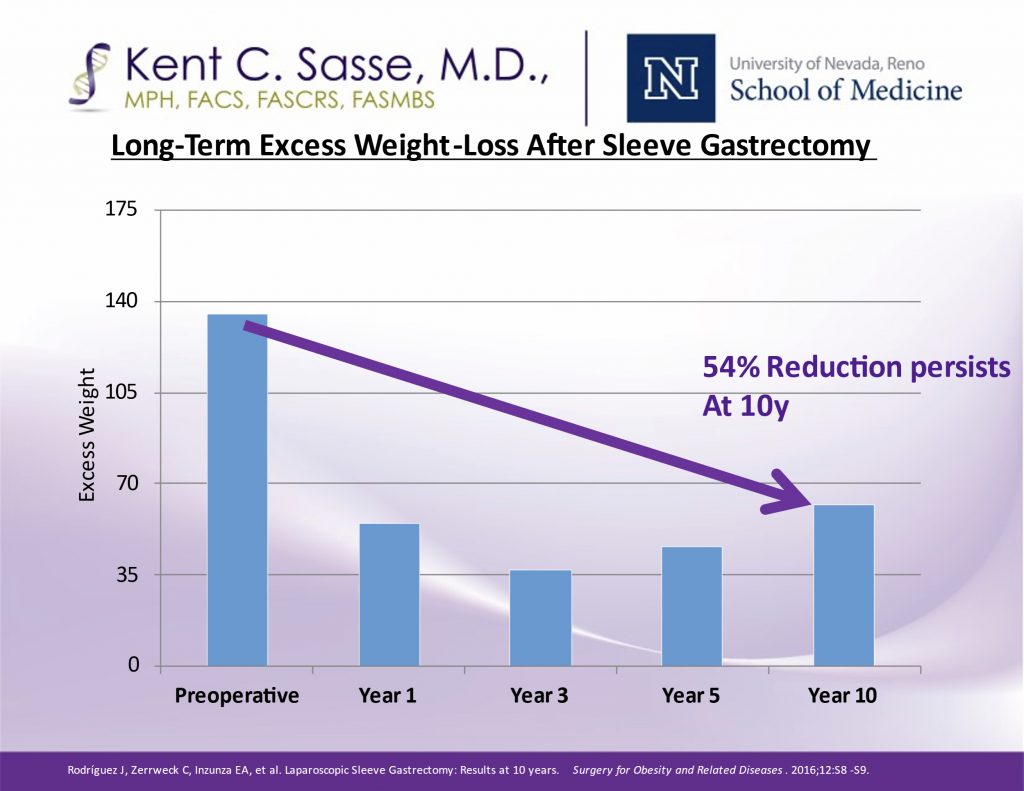In a new series, we’re debunking persistent myths of weight loss surgery. Read the first in our series, Weight Loss Surgery Myths Debunked – You’ll Have Terrible Scars.
The idea that you’ll probably gain back the weight following weight-loss surgery is another common myth. But is it true? According to the largest, most comprehensive studies around the globe, the answer is no.
The Weight Regain Myth
Before we unpack the weight regain myth and discuss why it is not even the right question to consider, let us address it head on with real data. Here is what the body weight trajectory after surgery looks like over the next 20 years, compared to those who did not have surgery, as published in the New England Journal of Medicine:

Pretty durable weight loss, certainly. The average person is enjoying an immense, long-term benefit of healthier body weight. But individuals within these group may do better or worse, and the trend over time can be toward some slow, uptick in body weight, as studies like this 10-year follow-up demonstrate:

Sleeve gastrectomy surgery is highly effective even ten full years later. Weight gain is a fact of life among populations and groups of people as we age. Every study that looks at humans across time shows weight gain occurring across time. After weight-loss surgery, nearly everyone experiences a highly beneficial reduction in body weight, but over time the trend is toward weight gain still for the average person. Over the course of 10 years after the surgery, around 10 or 20% of people have gained most of the weight they had lost with surgery. That means 80 to 90% of people are still enjoying a significantly healthier weight 10 full years later.
But there are three important reasons why the question of weight regain is not the right question to be thinking about.
- It’s about health, not specifically about the number of pounds. Look at giant countrywide studies or huge studies in the United States comparing weight-loss surgery patients versus traditional management of obesity, and you quickly find that after surgery, people live significantly healthier and longer lives. So, trying to identify the precise fraction of people who regained their weight totally misses the point, which is that, as a treatment, this procedure dramatically improves health and longevity. Think of it like this: if your sister had cancer and was considering a therapy that improved her health and added years to her life, what exactly is the point of finding that 20% of people experience cancer recurrence over the 10 years? Don’t you still want the best treatment for her?
- Regaining all the weight is not game over. Surgery is considered highly effective, and so is revision surgery if the first one failed. So just because a person regained their weight does not mean they cannot be successful with additional surgery. In fact, the results are quite excellent if the initial sleeve or band procedure led to only temporary weight loss. Converting it to duodenal switch for example has a 90% success rate at reversing diabetes and obesity over the long haul. Once again think of it like this: if your brother had a severely fractured hip and the first surgery failed, it makes no sense to throw up your hands and confined him to a wheelchair when a second surgery would be 90% successful enabling him to walk.
- The surgery is called “metabolic” surgery because it changes the hormones and body chemistry, producing favorable events that are not reflected in pounds. The primary example of this phenomenon has to do with blood sugar regulation and diabetes. But it also occurs to some degree with blood pressure, triglycerides, polycystic ovarian disease, infertility, and obstructive sleep apnea. The changes from surgery in the body’s chemistry result in improvements of all these health conditions, even without losing pounds. I have too many examples each year to even list in which a patient who may have had unusually little actual pounds lost has nonetheless reversed their sleep apnea, type two diabetes and hyper triglyceridemia. These things all result in improved quality of life and improved health. Yes, we want more pounds off the body, but let us not forget there are additional benefits.
So, it is a myth that you will probably gain the weight back. The truth is you will probably maintain off a large and significant number of pounds for decades. And more importantly, you will enjoy improved health and a longer life. And by the way, if you did regain the weight, as a small percentage of people do, you can have the surgery revised safely and easily so that you are back on track again with long-term weight loss.




